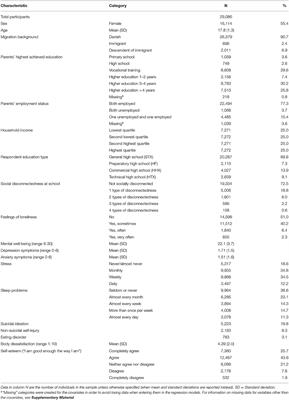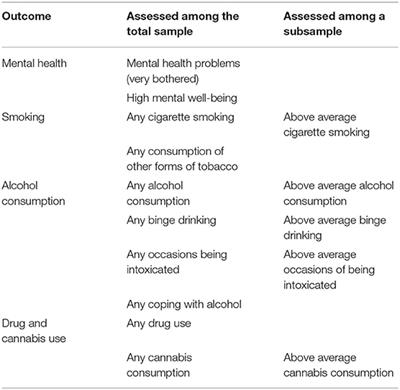EDITORIAL
Published on 06 Sep 2021
Editorial: How the Timing, Nature, and Duration of Relationally Positive Experiences Influence Outcomes in Children With Adverse Childhood Experiences
doi 10.3389/fnbeh.2021.755959
- 5,044 views
- 4 citations
14k
Total downloads
84k
Total views and downloads
EDITORIAL
Published on 06 Sep 2021
OPINION
Published on 18 Aug 2021
ORIGINAL RESEARCH
Published on 09 Aug 2021

ORIGINAL RESEARCH
Published on 28 Jul 2021

ORIGINAL RESEARCH
Published on 20 Jul 2021

ORIGINAL RESEARCH
Published on 29 Jun 2021

ORIGINAL RESEARCH
Published on 16 Apr 2021

ORIGINAL RESEARCH
Published on 12 Apr 2021

ORIGINAL RESEARCH
Published on 21 Dec 2020

